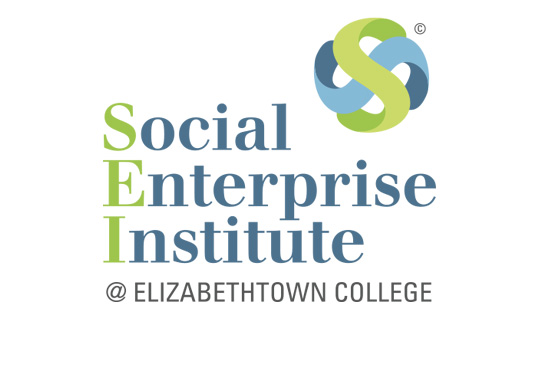 As a double major in social work and interfaith leadership studies, sophomore Rebekah Smith said she didn’t expect to be working with money. But, as an intern with Elizabethtown College’s Social Enterprise Institute (SEI), she helps south-central Pennsylvania social enterprise groups develop and fund new institutions.
As a double major in social work and interfaith leadership studies, sophomore Rebekah Smith said she didn’t expect to be working with money. But, as an intern with Elizabethtown College’s Social Enterprise Institute (SEI), she helps south-central Pennsylvania social enterprise groups develop and fund new institutions.
E-town’s SEI provides funding for social enterprises, or it points organizations in the right direction for funding, no matter how far along in the process they are. As an intern with SEI, Smith helps provide grants or development for these social enterprises.
Smith first heard of the job at the start of the spring 2017 semester through a presentation by the former SEI intern. “I don’t do business, so initially I didn’t think it was a very viable option for me,” Smith said. Even so, she interviewed for the student position and was selected.
“No matter what different organizations I’ll be working with in the future, they’ll most likely be trying to get grants,” Smith said. “People always need money.”
Social workers interested in solving persistent social problems bring the heart to SEI.”
The student said she goes through “thousands of corporate foundations a week” and sees common buzzwords among organizations. Many social enterprise groups focus on environmental conservation and supporting troubled youth. While Smith learns to be a social worker in her courses, she runs a social work organization at SEI.
“It’s all very new to me,” the sophomore said. “It’s not difficult—I’m learning fast—but I know nothing about business, so I have to learn everything to be the most effective at it.”
She has also found connections between SEI and interfaith. Many of the organizations she sees on the database are influenced by faith groups. Even so, they will accept grants from organizations of similar and different religions. For these groups, the cause transcends religious barriers.
SEI Director Jim Reeb said that he believes social work and interfaith come together nicely with the business side of SEI.
“Social workers interested in solving persistent social problems bring the heart to SEI,” Reeb said. “It often brings the discipline of the service to the population that we’re addressing.”
Reeb also said interfaith studies are useful, since SEI works with organizations of various religious backgrounds.
Smith has only worked with SEI for three months and has yet to see an entire project completed, but she already finds the work gratifying. “It’s rewarding to watch a project go through the processes and see it get formed,” Smith said.
She said she is satisfied with the work she has done so far, and the work yet to be done. Perhaps that’s what led her to a social work and interfaith double-major—a willingness to learn new skills and step out of her comfort zone in exchange for the opportunity to help others.

